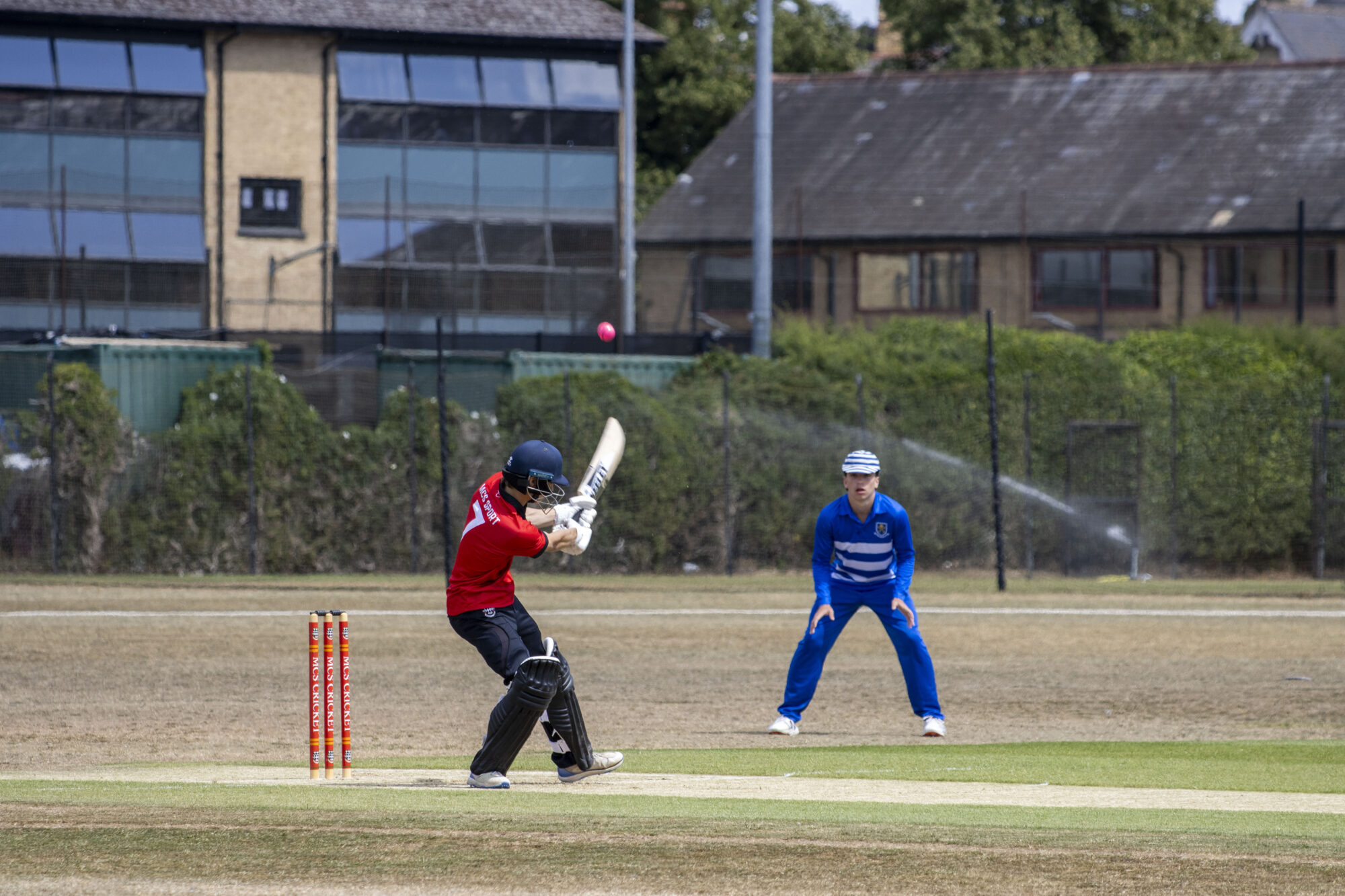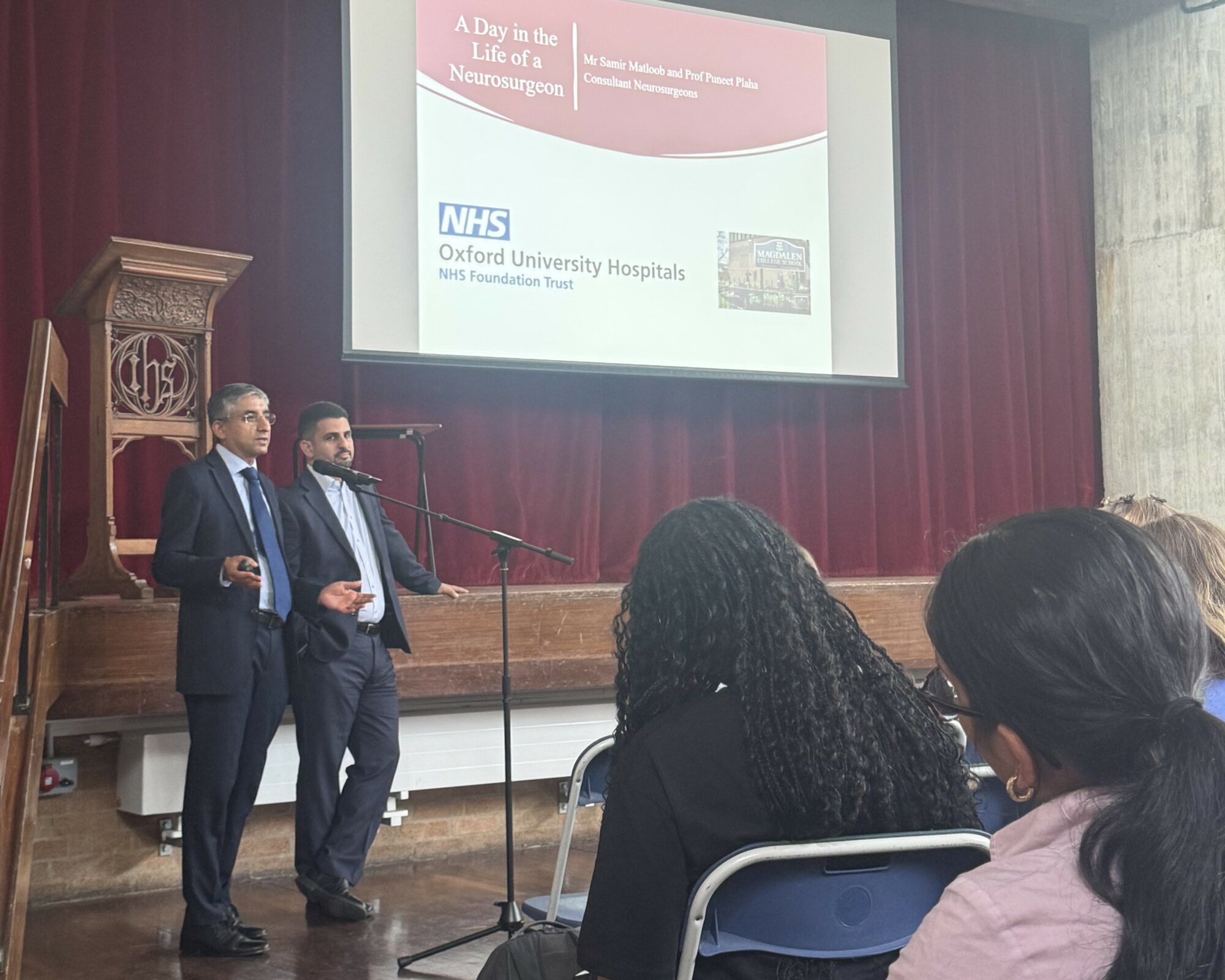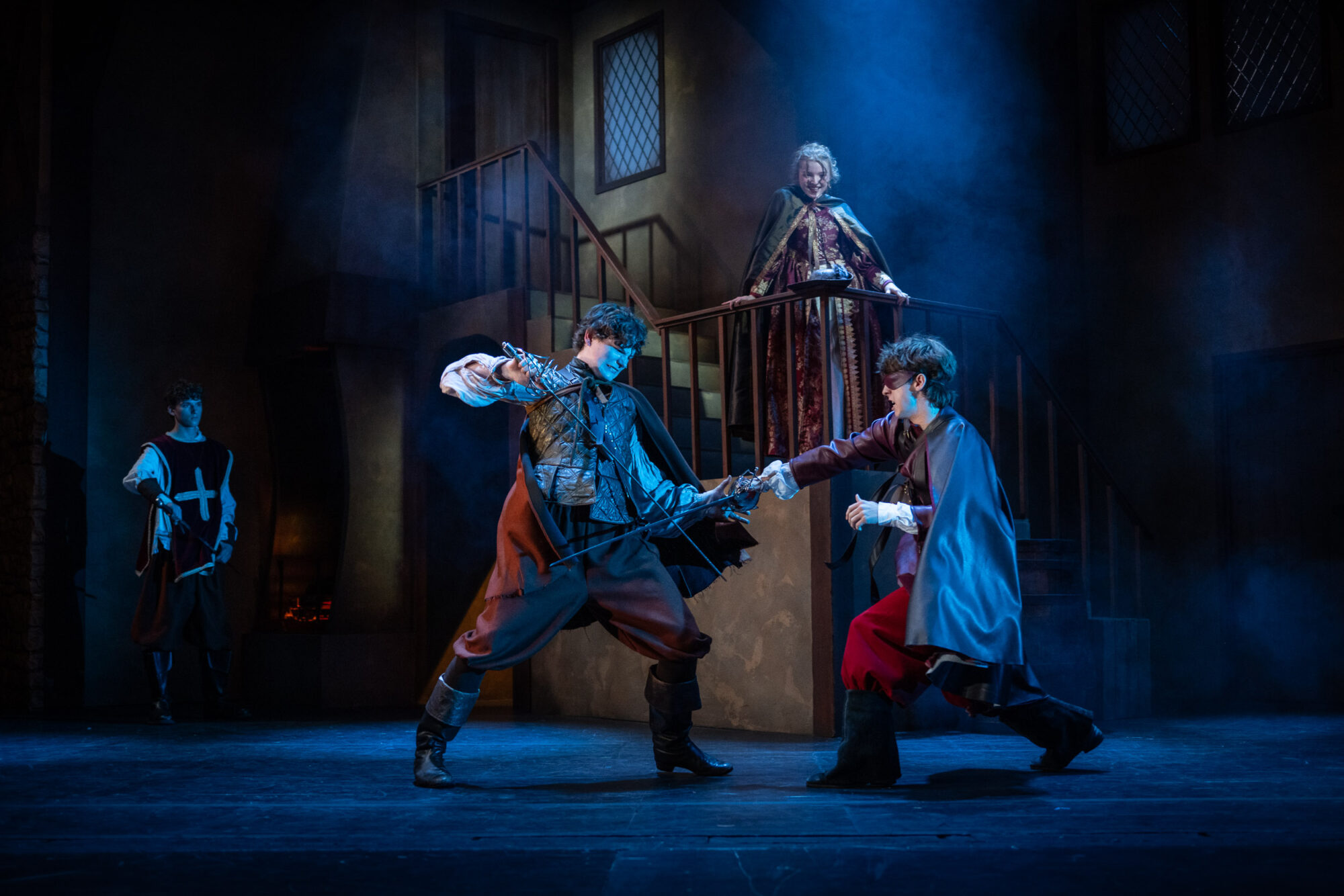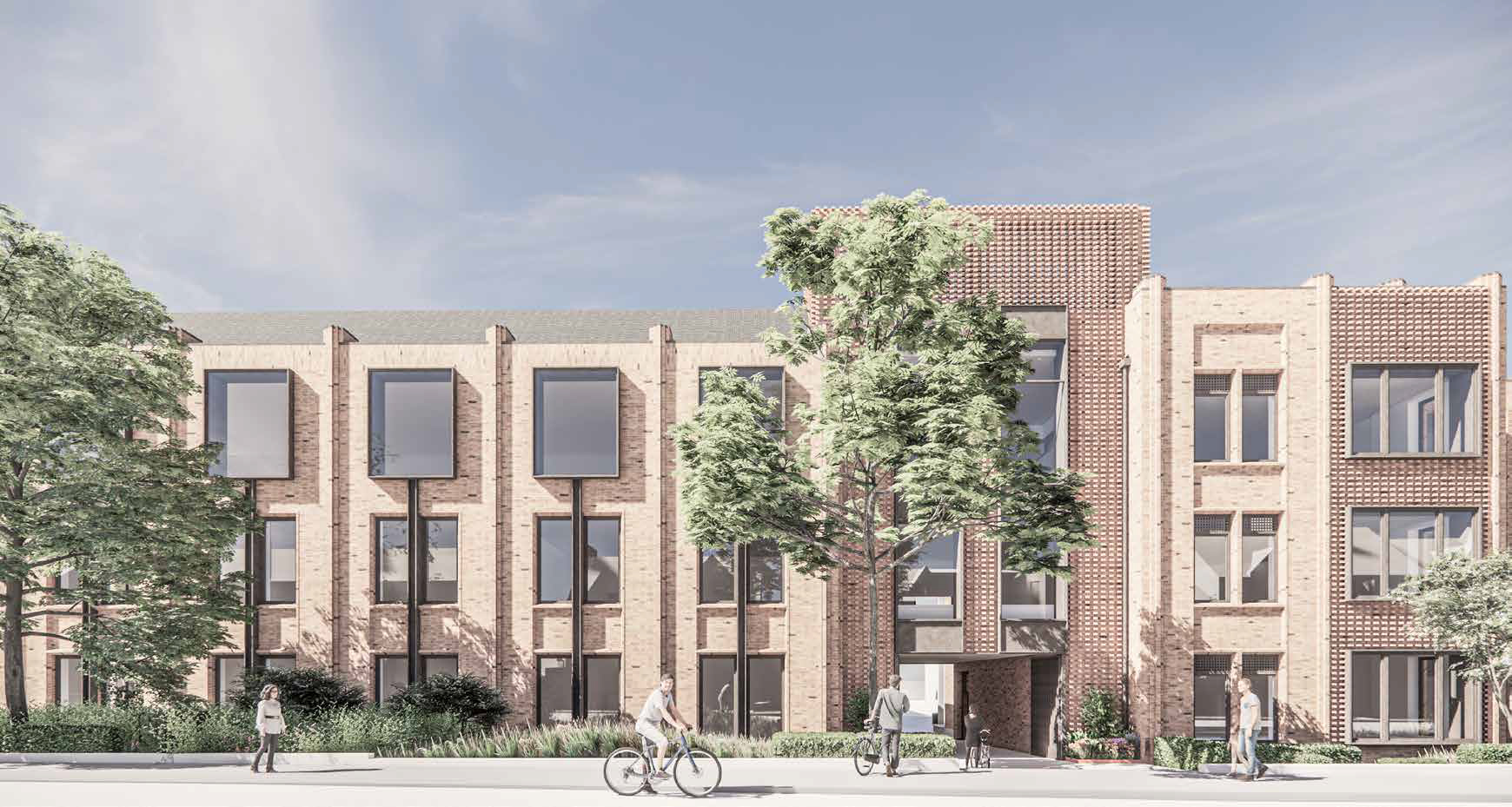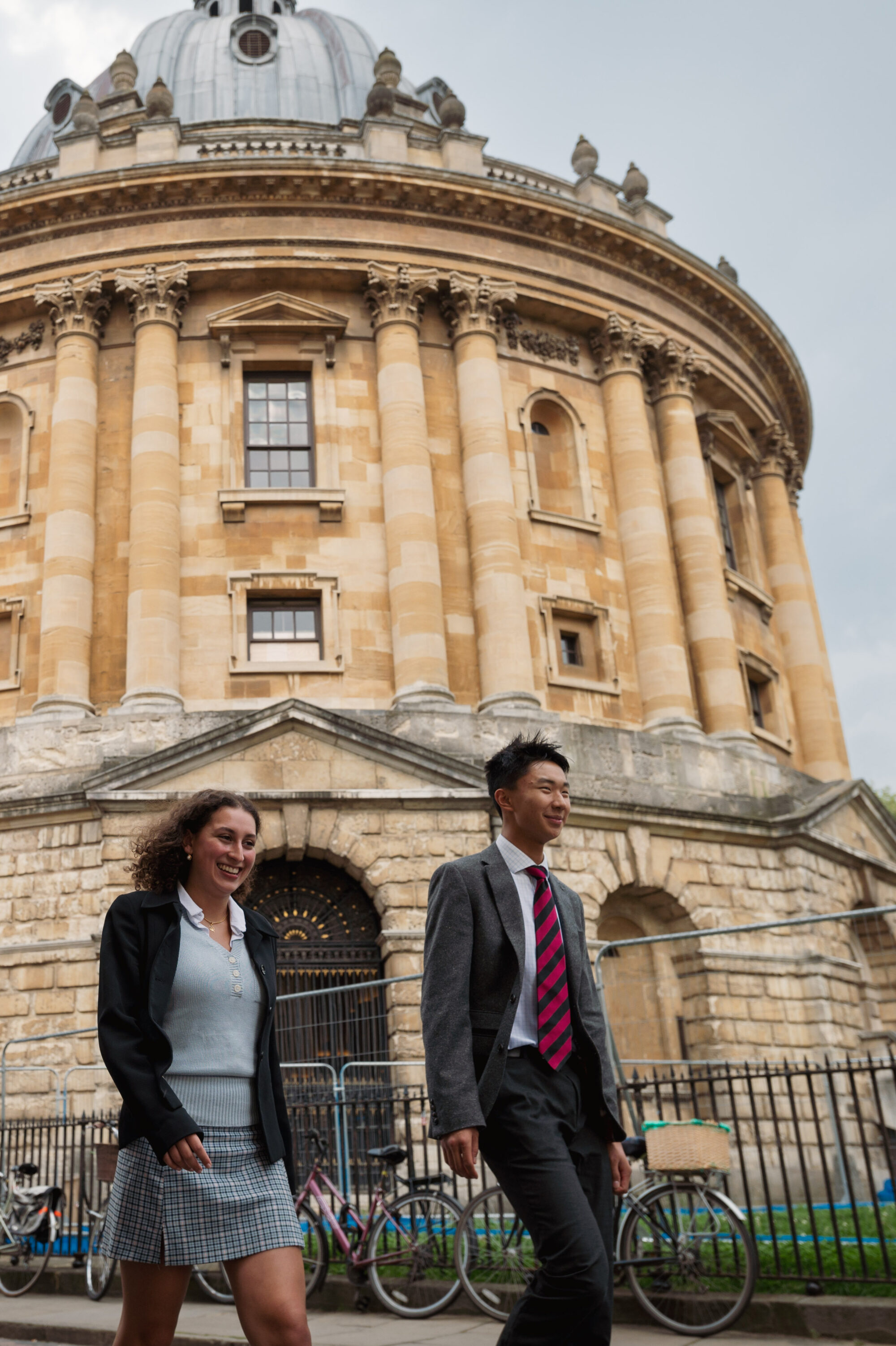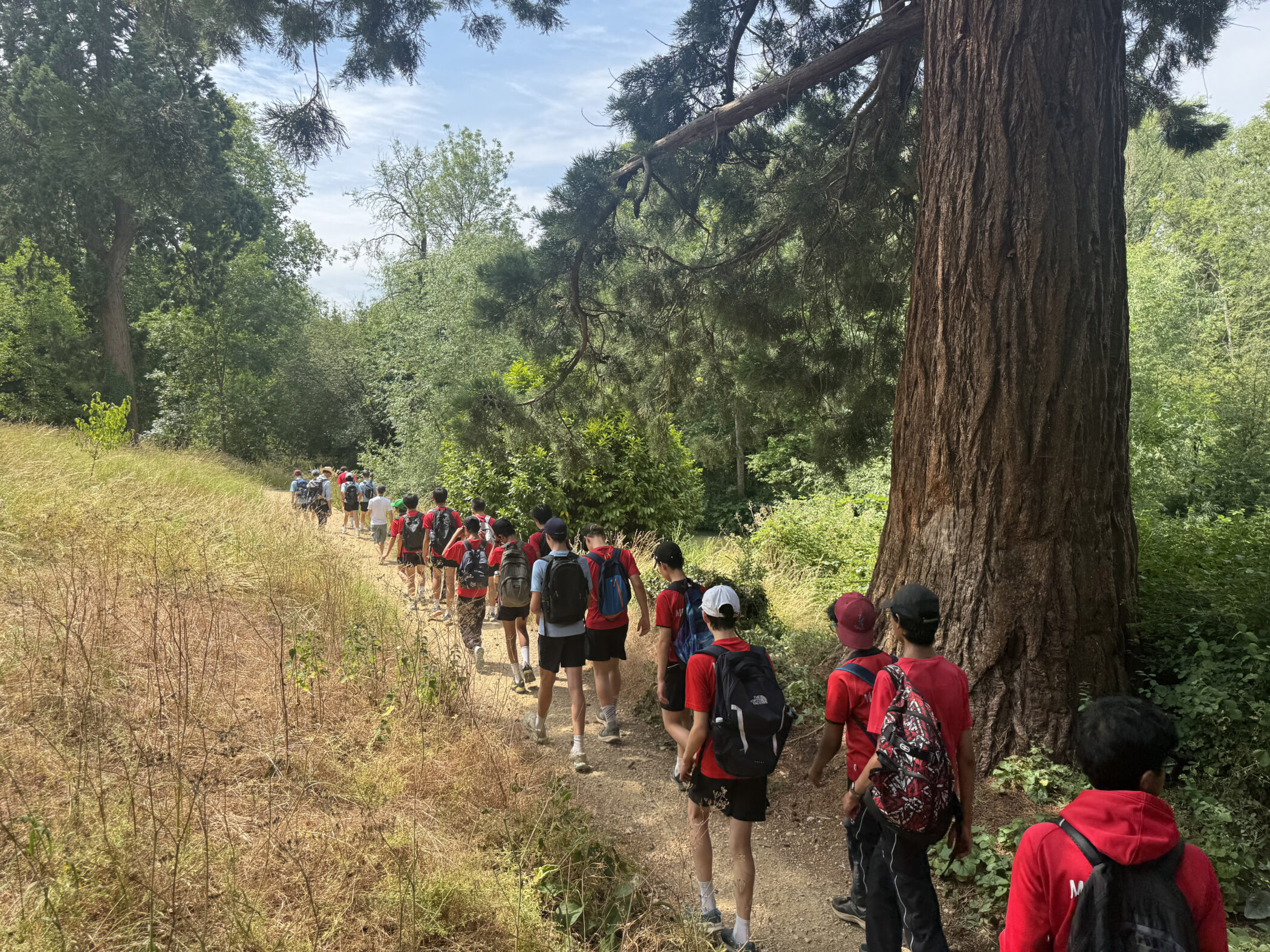In a world marked by diverse perspectives, understanding the complexities of the conflict unfolding in Israel and Gaza is paramount. As ever, we have explored this intricate issue by examining the historical context as well as the current events as part of fostering open dialogue within our community at Magdalen College School.
Reflecting in Chapel
As pupils and staff gathered together in Chapel on Tuesday morning, the crisis was the focus of a special address given by the Usher. This came as the school prepares to mark Remembrance Day on Friday, reflecting on our links with the current situation whilst also honouring the memory of OWs who lost their lives in wars around the world.
"Fox Russell [OW 1907] fell on what is now called Tel Halif, a high mound dominating the routes down towards the sea, and down to the port town of Gaza, only 30 miles away."
– The Usher's address to Chapel on 7 November
The Master also made an address, which considers competing world views, relative levels of media attention and the limitation of past political solutions. She finished by urging pupils to ‘read widely, think deeply and do better in the world than my generation is doing.’
If this conflict reminds us of anything, it is that politics matters.
– The Master addressing Chapel on 7 November
Full transcripts for both addresses are available in full below:
Usher’s Address
I was never particularly one for keeping newspaper cuttings, a habit of a bygone age. There was really only ever one; a smaller-than postcard image of three men: President Bill Clinton standing behind Yasser Arafat, Chairman of the Palestine Liberation Organisation, as he shook hands with Yitzhak Rabin, the Israeli Prime Minister. The handshake was the symbolic first step on the path to what was called the two-state solution: a Palestinian state alongside the state of Israel, when for centuries both of these states had existed either as provinces of larger powers, or had not existed at all.
I kept the picture, stuck on a chest of drawers, partly because it presented as a clear case of history in the making: in the aftermath of the Cold War there was real optimism that regional conflicts with wider implications now had a chance of a fresh look, a fresh attempt at resolution. And there was a personal side too: around the time of that handshake and during the years after it, I was lucky enough to travel to Syria, Israel and Jordan to visit family and friends – one could do that, in those days. These are beautiful countries, with beautiful people gracing them. The quality of light in the Middle East is something I am lucky to have to keep in my heart forever, even if many of the buildings I saw illuminated no longer stand.
And since then? Plenty of connections have endured, not least with Beersheba, today the largest city in the Negev Desert. It just so happens that there is a Commonwealth war cemetery there, whose welcome information highlights the grave of John Fox Russell, OW, MC and VC, who died 106 years ago yesterday. He was killed, and awarded the Victoria Cross, in the hills to the north of the city after its capture by an Australian cavalry charge. Fox Russell fell on what is now called Tel Halif, a high mound dominating the routes down towards the sea, and down to the port town of Gaza, only 30 miles away. Thus, John Fox Russell is considered to have been killed in part of one of the Battles of Gaza in 1917, as the land in which he died was promised and hoped for in at least three different directions.
And what of the newspaper cutting? About 18 months ago, my little son tore it beyond repair when pulling it off that chest of drawers it had been stuck for most of my life – carelessly and innocently, in the way that 2-year-olds do. I could hardly be cross. In any case, in many ways it was fitting that he did so, for the hopes of a two-state solution had surely faded long before then, and need something else to revive them.
And now here we are, with the Israeli government sustaining assaults by land and air on the Palestinian enclave of Gaza, in response to the terrorist attack of 7 October. How should we respond? I think we should start by acknowledging that none of us is wise enough to answer the questions that we all come back to; if we think we are, it is only because our answers are pre-judged by a particular sympathy to one side or the other. How should the Israelis respond to an appalling attack that deliberately targeted civilians, launched from military bases located in a densely populated civilian area, in some cases deliberately wrapped around and under civilian infrastructure? How should Palestinians respond to the plight they face in Gaza, trapped in a narrow strip of land that many have compared to little more than a vast refugee camp, come prison, now bombed and attacked in wave after wave of assault? And always, we instinctively come back to the question – where did it begin? And there is no true answer to this, only our own opinion. As an Israeli said mournfully – here we are again, chapter 21.
So what should we do? We cannot solve the crisis. We can and should mourn the innocent dead of all sides. We must recognise – and have moral clarity – that Hamas is not all Gazans; is not all Palestinians; is not all Arabs; and, goodness me, is not all Muslims. We must recognise – and have moral clarity – that the current Israeli government and the controversial settlers they enable are not all Israelis, and not all Jews.
And therefore, what we need most of all is to be alert in our own lives to suggestions to the contrary. We must recognise, and stand against, the current situation in Gaza and Israel taking the form of Islamophobia or anti-Semitism in this country. Both are reprehensible. Britain has a far longer history of anti-Semitism than it does of Islamophobia, although the reasons for this are not something there is time for today. The result is that, perhaps counter-intuitively, we are better at spotting Islamophobia than we are anti-Semitism. And that is why I will finish by saying a little more about the latter, which should not be taken to suggest that one form of discrimination is worse than another.
Jews were expelled from England in 1290 – much of what they owned conveniently finding its way to the exchequer of Edward I. In Oxford, the thriving community around St Aldates disappeared, and today a plaque in the Botanic Garden marks the site of the Jewish cemetery outside the old walls of the city.
It is a particular feature of anti-Semitism that Jews always seem to be blamed for what are seen as the great sins of the age. This has gone to absurd – and deadly – lengths, for example, in the 20th century. At a time when the world was riven by the competing visions of capitalism and communism, it is extraordinary that opponents condemned Jews as the scheming architects behind both. The trope of a world conspiracy, co-ordinated and controlled by secretive Jews, has not gone away, and I guess it now never will. There are very few conspiracy theories that lack the taint of anti-Semitism.
And so it is today, with imperialism condemned as one of the greatest sins our age, Israel is condemned by some as a white imperialist and colonial power, and all hostility to all Jews thence justified. Leaving aside the fact that white Israelis are a minority in the country, this belies a hopeless misunderstanding of imperialism and colonialism.
And yet it is entwined with a strong thread of identity politics in our society. And identity politics, in its various forms down the centuries, always, always leads to anti-Semitism. And is doing so again, today, in this country.
I do not say all this to burden you with a sense of guilt. I have never believed that the sins of the mothers and fathers should be visited upon the sons and daughters. It is rather so that you, that we, can recognise what is happening, and what to look out for and stand up against. And it is not all a story of sorrow.
We have just heard and sung the settings of a psalm, words written hundreds of years ago to the glory of the God shared by Jews, Christians and Muslims. We are all one people, of all religions and none, and we can strive to live at one-ment. May God make it so.
Master’s Address
I was listening over half term to Martin Griffiths, a UN official who works on humanitarian catastrophes. He was talking about a disaster that so far has claimed, we are told, 9,000 lives, and is destabilising neighbouring borders. It is in the Sudan.
I’m going to wager that this isn’t the region you were expecting me to name. Rather, you may have been wondering what, if any, remarks I might make about the unfolding human disasters we are witnessing and experiencing in Gaza.
I think it’s worth our reflecting on why it is that our world is watching Gaza more than it is the Sudan, because I think that both conflicts are raising some questions in many minds about what human lives are worth, and why some people think that – or act as if – some lives are more valuable than others.
What we have in the conflict in Gaza is a clash of competing world views: on the one hand, is this an existential fight for survival on the part of Israel, which is backed by the US, and without which the lessons of the Holocaust might be forgotten, and the protection of Jews who have sought haven from around the world may vanish? Or, is it a story of two densely populated Palestinian enclaves, the West Bank and Gaza, where the average age of the population is under 20 years and where unemployment and deprivation are rife? Enclaves which are fertile soil (what little soil there is) for terrorists, who are also backed by a foreign power, in this case Iran? Will Western liberalism or Islamism prevail, and at what cost to innocent civilians?
And why are we hearing relatively so much about this conflict? This is in part because of the geographical importance of the region, partly because both of the international backers I’ve just mentioned have nuclear capability, and partly because of local diaspora communities in Britain and the US: you will likely know people who have connections, friends and relatives who are Israeli or Palestinian.
If this conflict reminds us of anything, it is that politics matters. Conflicts in the region have in part been created by the limitations of past political solutions; but what civil war, any war, reminds us of is that the failure of domestic and international political solutions is worse. And I say ‘reminds us’ because what worries me most is that the importance of not resorting to violence, to war, is being eroded or forgotten; and this is in part because our politicians strike us as not very impressive at best.
Sometimes people are well represented by their governments, and sometimes they are not. All of which is once again why I exhort you to read widely, think deeply, and when your time comes, to do better in the world than my generation is doing. As the Chinese general Sun Tzu observed over 2,000 years ago in The Art of War, “The greatest victory is that which requires no battle.”
 MCS ranks among the top independent secondary schools, and in 2024 was awarded Independent School of the Year for our contribution to social mobility.
MCS ranks among the top independent secondary schools, and in 2024 was awarded Independent School of the Year for our contribution to social mobility.

 28 of our pupils achieved 10 or more 8 or 9 grades in 2024.
28 of our pupils achieved 10 or more 8 or 9 grades in 2024.
 In 2023-24, MCS received over £448,000 in donated funds.
In 2023-24, MCS received over £448,000 in donated funds.